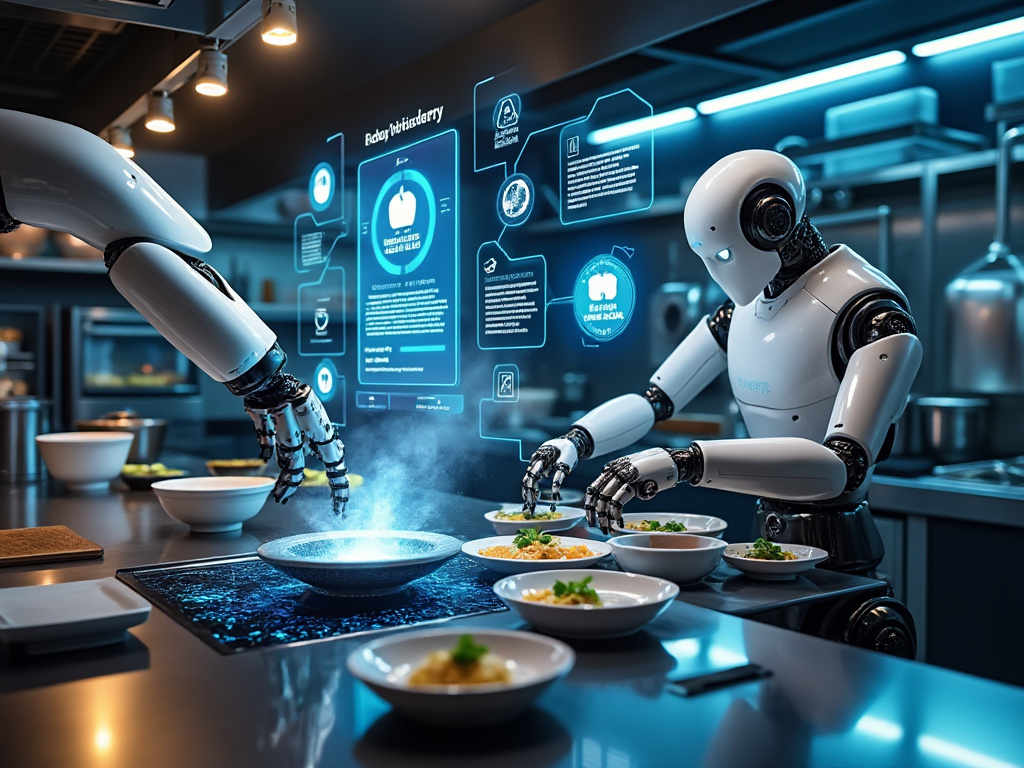The hospitality industry, still reeling from the COVID-19 pandemic, faces a critical challenge: a significant labor shortage. In a bid to bridge the gap, many businesses are turning to robotic technology. However, a recent Washington State University study suggests a surprising wrinkle – automation might inadvertently worsen the problem due to “automation anxiety” among hospitality workers.
Automation Anxiety: A Barrier to Adoption?
This study, aptly named “Automation Anxiety in the Hospitality Workplace,” defines the phenomenon as the fear that robots and technology will replace human jobs. The research, surveying over 620 lodging and food service employees, found a direct link between automation anxiety and employee well-being. Workers fearing replacement reported higher stress levels, job insecurity, and ultimately, a greater likelihood of leaving their jobs.
The More You See, The Less You Believe?
Interestingly, the study revealed a counterintuitive finding: employees who had direct experience working with robots exhibited higher levels of automation anxiety. This suggests that interacting with robots doesn’t alleviate the fear of replacement; it might even intensify it. Furthermore, the study found that both frontline workers and managers were susceptible to automation anxiety, highlighting the pervasive nature of this concern across the organizational hierarchy.
A Double-Edged Sword: Addressing the Labor Shortage Responsibly
The hospitality industry already struggles with some of the highest employee turnover rates. Adding automation anxiety to the mix could exacerbate the labor shortage further. Lead author, Dr. Bamboo Chen, emphasizes the universality of the issue: “Automation anxiety has a real impact, regardless of position or sector.”
For the hospitality industry to reap the benefits of automation without exacerbating the labor shortage, a critical shift is needed. Employers must prioritize addressing worker concerns. Strategies like transparent communication about the role of robots as supportive tools, not replacements, and retraining programs that equip employees with the skills to thrive in a changing environment will be key to fostering a stable and future-proof workforce.
The Human Touch vs. The Machine: Navigating Automation Anxiety in Hospitality
The Washington State University study delves deeper, exploring how employee perceptions of robots shape their job satisfaction and turnover intentions. Here, a surprising truth emerges: employees who view robots as highly capable and efficient are more likely to consider leaving their jobs. This suggests a fear of being rendered obsolete by superior technology, prompting them to seek opportunities elsewhere.
Reframing the Narrative: Collaboration, not Competition
To address this concern, employers must create a balanced perspective on robotic technology within their workforce. Highlighting the limitations of robots alongside their benefits is crucial. More importantly, emphasize the irreplaceable value human workers bring to the hospitality industry. Fostering a culture of human-robot collaboration, rather than competition, is key. This collaborative environment can alleviate the fear and insecurity associated with automation anxiety.
Breaking the Vicious Cycle: A Proactive Approach
The study warns of a potential “negative feedback loop” fueled by robot-phobia. As employees leave due to replacement fears, the labor shortage worsens, forcing companies to rely more heavily on automation. This cycle perpetuates the problem, creating a vicious loop that undermines workforce stability.
To break this cycle, employers need a proactive approach to robot-phobia and technology implementation. Here are some key strategies:
- Champion Human-Robot Collaboration: Clearly communicate how robots augment human capabilities, allowing employees to focus on guest interaction and personalization – areas where human touch reigns supreme.
- Transparency and Training: Ensure employees understand the purpose and limitations of robotic technology. Provide training programs to help them adapt to working alongside robots and develop skills that thrive in a tech-enhanced environment.
- Employee Voice and Ownership: Include employees in the technology rollout process, actively soliciting their feedback and concerns. This fosters a sense of ownership and control, reducing job insecurity.
- Invest in Upskilling: Offer opportunities for employees to build new skills and take on roles that complement the capabilities of robots.
By adopting a proactive and employee-centric approach, hospitality businesses can leverage automation effectively while mitigating the negative impact of robot-phobia. This fosters a more stable and sustainable workforce, primed for success in the evolving hospitality landscape.
The Human Element Endures: Hospitality Navigates the Automation Paradox
The Washington State University study on robot-phobia delivers a vital message to the hospitality industry: technology can be a double-edged sword. While robots offer solutions to the labor shortage, the fear of job displacement (“robot-phobia”) can significantly impact employee morale and retention.
The study reveals a direct link between automation anxiety and stress, job insecurity, and ultimately, a higher likelihood of employees leaving. As businesses turn to robots to bridge the labor gap, this “automation paradox” becomes a critical concern.
Beyond Efficiency: The Value of Human-Centric Hospitality
The key to navigating this paradox lies in reframing the narrative. Hospitality, at its core, thrives on the human touch. Robots can excel at streamlining operations and handling repetitive tasks. However, fostering guest connections, personalization, and genuine hospitality remains the unrivaled domain of human interaction.
Building a Future-Proof Workforce: Strategies for Success
Forward-thinking hospitality businesses will prioritize strategies that:
- Champion Human-Robot Collaboration: Clearly articulate how robots serve as collaborators, freeing up human employees to focus on guest interaction and delivering exceptional experiences.
- Invest in Communication and Training: Ensure transparency by openly discussing the purpose and limitations of robotic technology. Provide training programs that equip employees with the skills to thrive alongside robots in this evolving environment.
- Empower Employees Through Upkilling: Offer opportunities for employees to develop new skillsets. This empowers them to take on roles that complement robotic capabilities, fostering a sense of ownership and career growth.
A Symbiotic Future: Humans and Machines, Working Together
By adopting a proactive and employee-centric approach, hospitality businesses can leverage automation for their advantage while mitigating the negative effects of robot-phobia. This paves the way for a future where humans and machines work symbiotically, creating a stable, skilled, and future-proof workforce. This is the key to ensuring not just efficiency, but also the continued success of the hospitality industry in a technologically transformed world.



